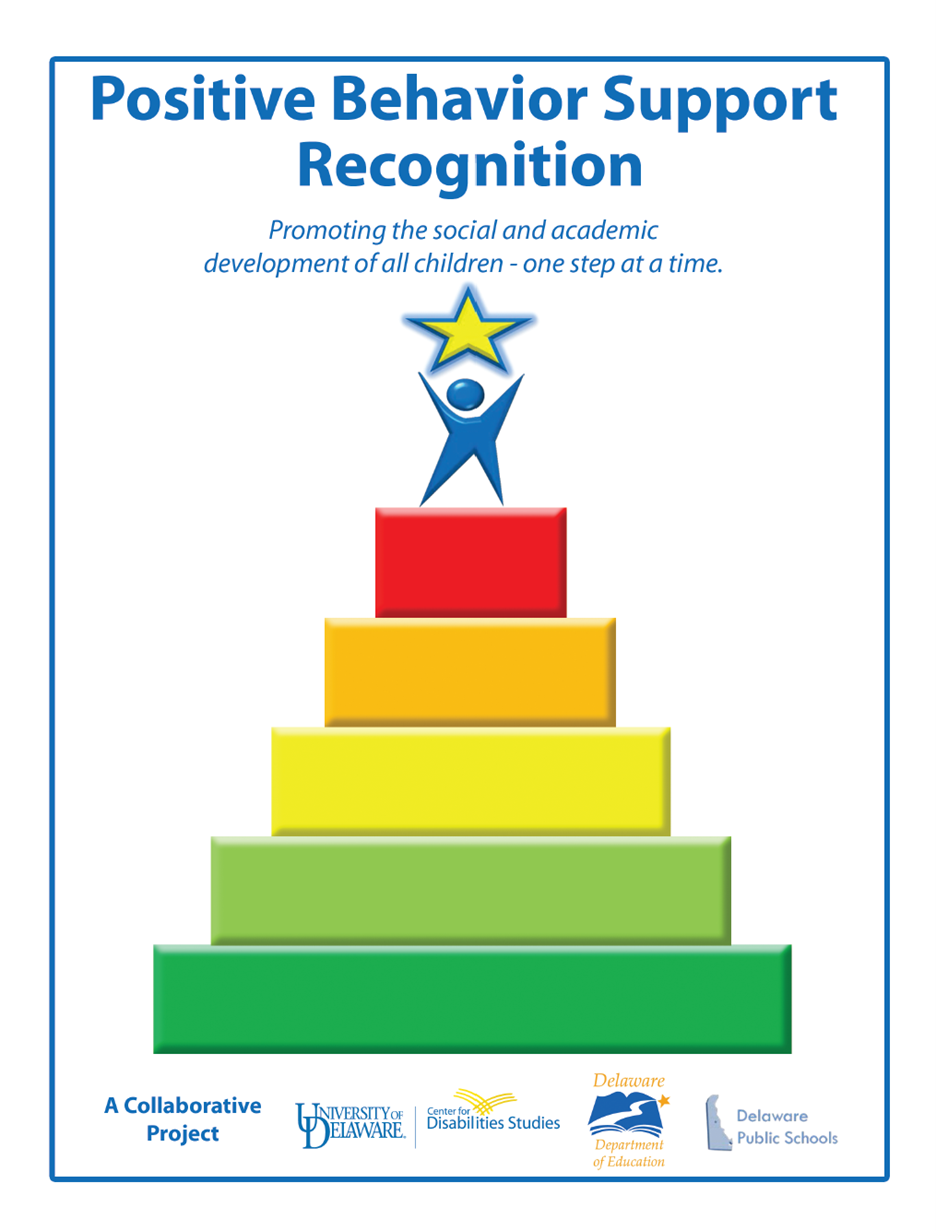The Delaware Positive Behavior Support Project (DE-PBS) offers annual recognition to schools that exemplify specific components of the DE-PBS Key Features. The Project currently recognizes four phases of School-wide Positive Behavior Support (SWPBS) framework implementation based on schools’ efforts in a given school year. Schools may apply annually in the spring, applications are reviewed each summer, and award notifications are made in the fall. Phase 1 recipients receive a certificate and blue ribbon, and Phases 2-4 recipients receive a certificate and banner for display. The DE-PBS Project staff enjoy the opportunity to recognize schools for creating safe and caring learning environments that promote the social-emotional and academic development of all children.
To earn Phase 1 recognition, schools report existence of a representative Tier 1: SWPBS/MTSS team, positively stated and defined behavior expectations and teaching strategies, an acknowledgment system, collaboration with families, and a framework for managing problem behaviors. Teams also administer a Needs Assessment or School Climate Survey to the staff and answer a reflection question intended to prompt reflection and action planning.
For Phase 2, an exemplary or proficient level of implementation on the DE-PBS Key Feature Evaluation (KFE) is a prerequisite for application. As the DE-PBS Project fidelity measure for schoolwide PBS/MTSS implementation, this tool is a logical requirement. Schools earning an exemplary level in a given year are automatically recognized, and those earning proficient develop and submit an action plan based on the KFE results.
To be recognized as a Phase 3 school, schools document their group-based interventions, including providing information about the problem solving team structure, use of behavioral interventions, data tracking, and providing information to parents. Teams also summarize a case study of a student supported through their intervention process.
Phase 4 schools have developed a strong Tier 2 system. Schools document this system, including overall intervention effectiveness, identifying evidence-based group interventions, and monitoring student responses to the interventions. This phase acknowledges the systemic structure of Tier 2 and the ongoing collection of intervention response data.

